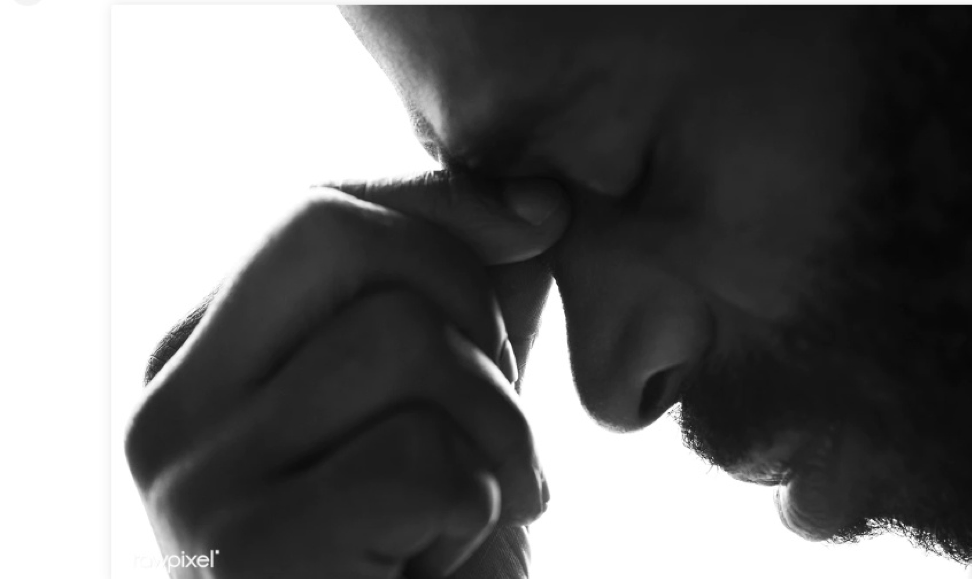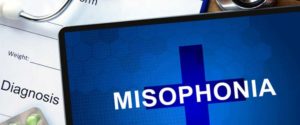 Stephen Geller Katz LCSW-R
Stephen Geller Katz LCSW-R
Misophonia Cognitive Retraining Therapy
 Stephen Geller Katz LCSW-R
Stephen Geller Katz LCSW-RMisophonia Cognitive Retraining Therapy
Misophonia Cognitive Retraining Therapy, as featured on the MTV True Life episode: “I Have Misophonia” premiering Friday, December 16th, 7:00 PM EST. See Clip >
|
|
|
| Moderate to severe anxiety triggered by chewing sounds, including: | ||
|
|
|
You may also be affected by visual stimuli, such as repetitive foot or body movements, fidgeting or movement you observe out of the corners of their eyes. Intense anxiety, rage and avoidant behavior may develop as a result of misophonia.
 * Do you feel your family and friends don’t understand how much you suffer?
* Do you feel your family and friends don’t understand how much you suffer?
* Do you often feel you can just suffer through a social event where there is eating present only to find that you must “escape” before you have a panic attack?
* Do you find that some people are at first understanding and make some efforts not to make the triggering sounds in front of you, but soon forget and constantly have to be reminded, causing you to feel angry, anxious and depressed?
* Are you avoiding social activities that you enjoy because of the misophonia?
* Are you fearful of losing your job and/or is the misophonia effecting your job performance?
You may be a candidate for Misophonia Cognitive Retraining Therapy, or MCRT.
Stephen Geller Katz, LCSW-R, with over 20 years of clinical experience, a New York University graduate, developed Misophonia Cognitive Retraining Therapy and founded Misophonia Cognitive Center™ in response to the growing number of people with Misophonia coming to his private practice from audiologists and ENTs. He discovered that by helping people to retrain and reinterpret the thoughts around their Misophonia, anxiety and depression symptoms began to improve. But even more important so did the Misophonic trigger response.
Misophonia is a disorder that is common in 20% population of the world. Misophonia means that you hate certain kinds of sounds and noises. These sounds might want to make you respond in unreasonable ways. The sounds are usually very soft, and they are from your everyday life, but they still may annoy you.

(Source)
If you ask a person with misophonia about sounds that annoy them, they will likely tell you that nails scratching a chalkboard, constant beeping sounds from equipment, the clicking of a pen, etc all get on their nerves.
DSM 4 and ICD10 do not recognize the disorder anywhere in their guidebooks. Even though many people think of the disorder as a psychiatric issue or a hearing issue, but these respective guidebooks do not highlight the disorder, even though 20% of the population may suffer silently.
Some researchers say that the disorder can be some anxiety disorder, a form of sound and emotion synesthesia. And some also classify it as a form of OCD. Some researches even refer to it as a milder form of autism. Some findings of the disorder do not point toward a particular conclusion.
Misophonia has various types and intensities. All cases vary from one another. You might have a severe type of misophonia in which you might react to the sound in a very aggressive while developing negative though. Or you might have a milder form of misophonia in which you might react to it with annoyance.
If you are in the 80% of the misophonia patients, then you might notice that sounds that come from the mouth can serve as a trigger. Sounds like chewing, munching, slurping, snoring, or whistling. You might react to it with annoyance or in a violent way.
Another form of misophonia is when you react to sound that comes from physical objects or a prevalent everyday sound, sounds like keyboard typing, mashing, the clock ticking, or chair squeaking. If you have this type of misophonia, you might react to the sound violently, and this is the type of misophonia which might be a cause of a mental struggle.
Phonophobia is a very severe form of misophonia. In this disorder, you might develop fear in response to the respective sound. You might develop this when you’re young, in response to a traumatic incident that left a lasting impression.
When it comes to misophonia, it is not a disease that the health care providers treat it with medications. Most health care providers suggest some kinds of long term treatments and exercises over the disorder.
Many healthcare providers will try to treat you with cognitive behavioral therapy in which they will try to alter your negative thoughts. They try to recondition your brain by replacing the sound response with some other mild response. The other treatment for misophonia is tinnitus retraining therapy. In this therapy, the health providers will teach you to tolerate the trigger.
But if you are not satisfied by the therapies the provider with suggesting you medications like Lyrica, it is coming across as an effective medicine for misophonia. They might also recommend you Klonopin, which is relatively less effective.
Experts began resorting to medications in recent times to treat misophonia based on its symptoms that matched other disorders, and this is why medications for combating depression, anxiety, etc. are among their top choices. So, it is no big surprise that medications that treat depression and anxiety are part of the subscription for treating misophonia.
Medications like fluoxetine and escitalopram that treat anxiety and depression can also treat misophonia. Dextroamphetamine and amphetamine can help with managing ADHD symptoms. And these medications tend to be a good match for treating misophonia.
Some bipolar disorder medications, like lamotrigine and divalproex sodium, also prove to be effective too. Moreover, experts believe that vitamins, minerals, and fish oil, and a few other dietary supplements can help ease misophonia.

(Source)
Misophonia is a common disorder. Many people have some degree of it. You can lower the effects of misophonia with certain types of medications and treatments. Many people say that it is a mental disorder, and some call it a hearing disorder. But the DSM and ICD do not recognize them in their guidebooks a disorder.
For more information or to schedule an online consultation, call misophonia specialist Stephen Katz today:
 Misophonia is a medical condition that can leave many men and women struggling with day to day life. For some, it is nothing more than annoying feeling after experiencing a specific sound. For others, though, it is more intense and can alter the way the brain reacts to various situations. In some situations, this condition can be so severe that it alters the way a person thinks and behaves. When this happens, it can lead to numerous complications as well as mental health concerns. When you meet with your LCSW-R in New York City, you’ll learn more about what this condition is as well as what treatment options may help you.
Misophonia is a medical condition that can leave many men and women struggling with day to day life. For some, it is nothing more than annoying feeling after experiencing a specific sound. For others, though, it is more intense and can alter the way the brain reacts to various situations. In some situations, this condition can be so severe that it alters the way a person thinks and behaves. When this happens, it can lead to numerous complications as well as mental health concerns. When you meet with your LCSW-R in New York City, you’ll learn more about what this condition is as well as what treatment options may help you.
 Medication is not considered the first line of attack when it comes to treating Misophonia. Generally, you will first need to discuss your condition with your doctor. Talk therapy and cognitive behavior therapy are often the first types of therapy and treatment used for this condition. That’s because it has such a significant impact on your day to day life and mental health. Your doctor will recognize the importance of treating Misophonia’s impact on your mental health as a first step.
Medication is not considered the first line of attack when it comes to treating Misophonia. Generally, you will first need to discuss your condition with your doctor. Talk therapy and cognitive behavior therapy are often the first types of therapy and treatment used for this condition. That’s because it has such a significant impact on your day to day life and mental health. Your doctor will recognize the importance of treating Misophonia’s impact on your mental health as a first step.
However, many people who suffer from this condition need additional help. That is why it becomes important to provide access to medications that can offer some type of support. Medications for Misophonia are generally antidepressants and other treatments used to treat depression and anxiety. These are the most common outcomes of Misophonia on mental health. The specific type of medication that may work for you depends on what types of hormonal imbalances are present as well as what type of underlying symptom you have.
Medications can be an appropriate type of treatment for Misophonia for many people with moderate to severe forms of this condition. However, it is generally a component of your comprehensive treatment, not the only option. It will not cure your condition either. For many people, it can lead to improvement in overall health and wellbeing because it promotes a more positive outlook and gives you the ability to enjoy your life more fully.
 If you believe you have Misophonia or you have not received quality treatment for your condition, contact our LCSW-R in New York City to learn more about how this treatment may work for you. A combined therapy and medication program may be exactly what you need.
If you believe you have Misophonia or you have not received quality treatment for your condition, contact our LCSW-R in New York City to learn more about how this treatment may work for you. A combined therapy and medication program may be exactly what you need.